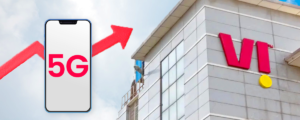
Ericsson, a prominent player in the field of telecommunications, operates three Research & Development Centers in India located in Chennai, Bengaluru, and Gurgaon. The “India 6G” team is a dedicated group of seasoned research leaders and experienced researchers specializing in Radio, Networks, AI, and Cloud technologies. Their mission is to develop foundational solutions that will shape the future of telecommunications.
Collaborating closely with Ericsson’s research teams in Sweden and the United States, the India Research team will embark on a collective journey to create groundbreaking technology. This technology is envisioned to create a cyber-physical continuum, enabling networks to provide critical services, immersive communication, ubiquitous IoT connectivity, all while safeguarding the integrity of the transmitted data. This team will work in harmony with Ericsson’s Global Research teams, focusing on various projects such as Channel Modelling and Hybrid Beamforming, Low-energy Networks, Cloud Evolution, Sustainable Computing, Trustworthy AI Algorithms with transparency and bias mitigation, Autonomous Agents for Intent Management Functions, Integrated Sensing and Communication for a seamless man-machine continuum, and Compute Offloading to Edge-Computing Cloud, among others.
Magnus Frodigh, Head of Research at Ericsson, emphasizes that the establishment of this dedicated 6G research team in India aligns with India’s specific requirements. It aims to integrate India’s needs into the mainstream of telecommunications technology evolution by collaborating with world-class research programs across international research laboratories.
Ericsson is actively partnering with esteemed educational institutions in India for research in Radio, AI, and Cloud technology. One of these collaborations is a 5-year partnership with the Indian Institute of Technology Madras’ (IIT Madras) Centre for Responsible AI (CeRAI), signed in September 2023. CeRAI is an interdisciplinary research center committed to conducting both fundamental and applied research in Responsible AI. This research is aimed at having a substantial impact on deploying AI systems in the Indian context. AI research holds immense importance for Ericsson, as 6G networks are expected to be autonomously driven by AI algorithms. Ericsson is also exploring collaborations with other premier engineering institutes in India to further 6G-related research.
Ericsson has been a part of the Indian telecommunications landscape since 1903, and its Research team was established in 2010. With the introduction of 6G Research in India, Ericsson is poised to play a crucial role in propelling India to the forefront of future communication technology.
Ericsson’s vision for a 6G network platform revolves around the seamless connectivity of humans and machines. It aspires to create a network that seamlessly merges the physical and digital realms, facilitating effortless interactions and immersive experiences. This vision is aligned with the “Bharat 6G” concept outlined in the Government of India’s vision statement, emphasizing ubiquitous connectivity, sustainable networks, and affordable communication.
Nitin Bansal, Head of Ericsson India, envisions that Ericsson in India, through the collaborative efforts of local researchers and global teams, will usher in the “India 6G” era. This will be achieved in partnership with the government, universities, and the broader industry ecosystem in India.
Ericsson is recognized as a global leader in 5G technology and powers 155 live 5G networks across 66 countries worldwide. It has received accolades in independent analyst reports, such as the Gartner 5G Magic Quadrant 2023 (for the third consecutive year) and the Frost Radar Global 5G Infrastructure. Additionally, Ericsson holds the top position in the latest ABI Research report on the sustainability of telco vendors. In India, Ericsson collaborates with leading Communications Service Providers, Bharti Airtel and Reliance Jio, to deploy 5G networks in the country.



